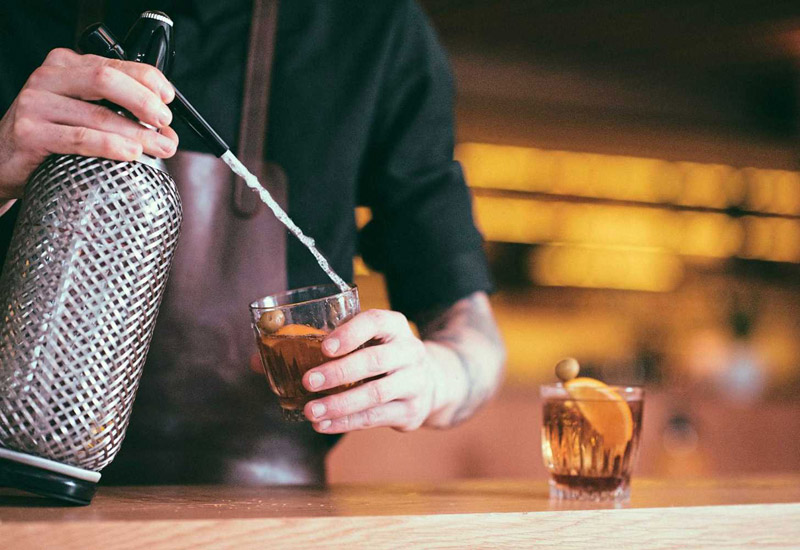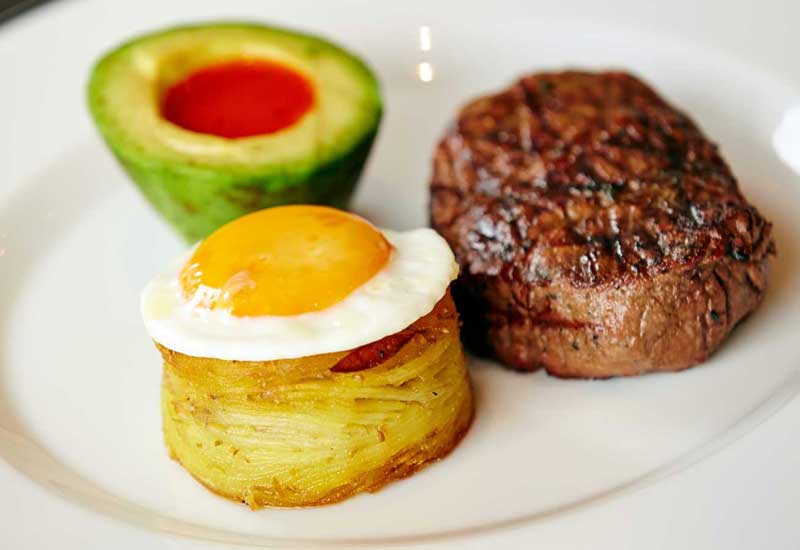“Even the mocktails to a point — it’s always something that’s overlooked in a restaurant and bar. You don’t get the same experience, so we try to look at that with the products we bring in and work with, to create great non-alcoholic drinks.
“Also, for a period of time when you open in Dubai, you’re always dry, so we wanted to get people to talk about our mocktails,” he adds, noting that he and Vallesi have strived to do something “positive” with the launch of Cocktail Kitchen, referring to the duo being keen for the homegrown concept to stand out as an independent offering, tailored to the needs of ‘everyday’ people.
“We have so many F&B choices in this city, but we felt there wasn’t enough of the accessible affordable concepts that people wanted. I’ve been here 10 years and I’d say you’re going to see more concepts like us in the future, and hopefully we’ll be part of that movement and people will remember all the positive things we set out to do. Ten years ago there were fewer players and a lot of the hotels were leasing spaces. The approach now is the opposite with the rise of the independents,” Gillespie comments.

| Advertisement |
While launching a concept without a celebrity chef or big name brand involved has huge appeal, there are numerous challenges to overcome with a project of this nature.
“At first, finding a location was a challenge. Two guys coming into a big hotel chain with a concept and not a brand was a challenge because they wouldn’t take us seriously — we knew what we were doing but we weren’t a brand. That was one of the first psychological hurdles that we had to overcome, while staying true to our concept.
"We had to keep knocking on doors until we found operators that understood our language, and then once you find a space, by the time you get to negotiations, sometimes they’re gone; you have a small window to make it happen.
“Behind the scenes, the cost of doing a project like this, raising the capital, finding a space, negotiating the rent, finding a contractor... the barriers to entry are quite high in this part of the world. Even down to the local legislation of the alcohol licence. Each element brought its own challenges but we had to look at each as an opportunity to improve,” Gillespie shares.
Vallesi makes the point that although the pair are F&B operators (so they know how to run a restaurant), this was their first time building one.
“That challenge comes with understanding all the processes and the legislation, bringing together architects, engineers, the landlord and the authorities to execute your business model. That has been a massive learning curve for us,” he reveals.
Not least with recruitment, no doubt, with nearly 40 hires for the outlet, all in line with two policies: recruiting locally and “looking at payroll as a monthly figure that covers basic salary, accommodation and transportation” rather than allowances.
“Our thinking was, if you are not able to come to this country and find a place where you want to live independently then probably your character is not entrepreneurial enough.
"It helps people to come out of their shell and be more independent, which will reflect in the way they interact with guests — they’ll be a little bit more themselves, more in control of their life,” Vallesi explains.
Asked about their overall impression of setting up their own bar and restaurant, and their plans for its future, Gillespie concludes: “It was daunting at the start but if you look at the end product, it gives me satisfaction; when customers come in, they are taken aback by the attention to detail. Now we have to make it sustainable, keep it growing and keep it fresh — and the people we have are very important to that process. Cocktail Kitchen is not just me and Giorgio; it’s the people behind the scenes as well, so we will always recognise and reward out team for their work and efforts.”










 Search our database of more than 2,700 industry companies
Search our database of more than 2,700 industry companies









